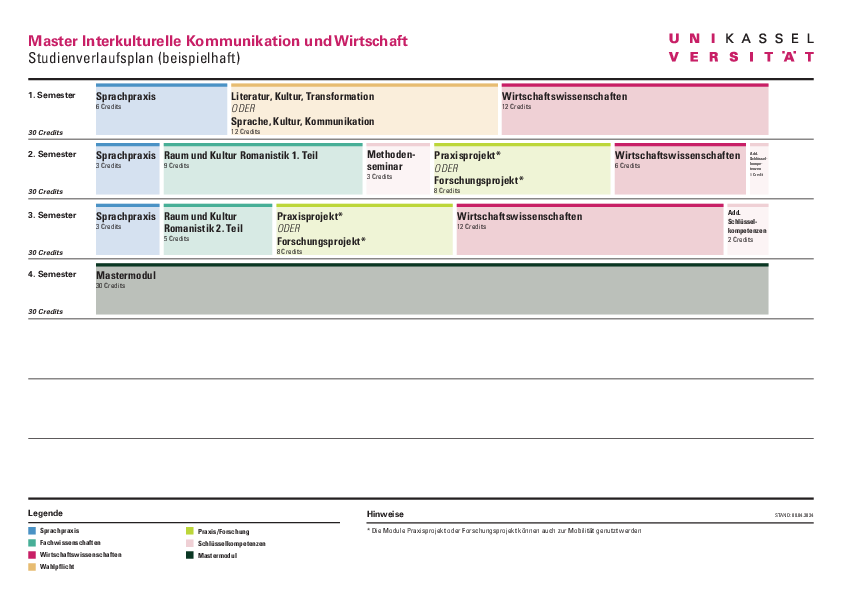Study structure
The content on this page was translated automatically.
The study of "Intercultural Communication and Business" is composed of the following areas:
Students deepen their knowledge of foreign languages and, among other things, build their ability to understand and compose complex texts.
Module 1a: French
Module 1b and 1c: Spanish
Module 2: Space and Culture
This module is devoted to, among other things, the political, economic, social and cultural structures, tendencies and developments in the French- or Spanish-speaking regions. These are reflected upon, analyzed and critically discussed, and different culturally specific perspectives on historical and current events are interpreted.
Module 3 Language and Culture
Students take a seminar on literature and cultural studies as well as a seminar on linguistics.
& nbsp;
Five elective modules are selected from a variety of concentrations:
Focus | Module |
BWL-Basis | Strategic Corporate Management and Information Management |
Controlling and Corporate Governance | |
VWL-Basis | Governance: Institutions and the public sector |
Governance: Policy and Market Dynamics | |
Economic Behavior and Governance | |
Economic Behavior: Models | |
Economic Behavior: Applications | |
Research Methods | Research Methods |
Master Profile Finance, Accounting, Controlling and Taxation (FACT) | Accounting in international groups |
Taxation | |
Finance | |
FACT Elective | |
Master Profile Information, Innovation and Management (IIM) | Supply Chain Management |
Service Engineering and Management | |
Innovation: Processes, Technologies and Transfer | |
IIM Elective | |
Master Profile Direct Marketing (DiMark) | Strategies and approaches in international direct marketing |
Distribution and Sales Management | |
Interactive Marketing and Targeting | |
DiMark Elective |
Students have the choice between a research-oriented or a practice-oriented module:
Module F4: Research Project
Independent exploration of a research field in either linguistics or literary studies.
Module P4: Practice Project
Conception and implementation of a practice day. Students deal with their own professional qualification and further develop, among other things, moderation and mediation skills.
Students supplement subject-specific knowledge in this module by developing their skills in seminars and exercises, e.g. in scientific research or applied knowledge transfer. The university offers a variety of seminars in the area of key competencies and methods.
In the context of a Master's thesis, students apply the knowledge they have gained in their studies to the independent treatment of a topic in philology or cultural studies or an application-related problem in economics.
Module 6: Master's degree module
